The Broke Backpacker is supported by you. Clicking through our links may earn us a small affiliate commission, and that's what allows us to keep producing free content 🙂 Learn more.
Our ears were not designed to pick up sound waves as they travel through water. So when we take a deep breath and dive down, a haunting and beautiful silence surrounds us.
If you have ever been SCUBA diving, you would have been aware of the regulator hiss and the general noisiness that forms the soundtrack of your dive. Working as a commercial diver, I have a certain affection for the noises associated with breathing compressed air underwater. There’s a mystique to being able to breathe underwater.
But that haunting silence of a one breathe dive cannot be beaten. I first experienced it as a kid, trapped under the power of the surf. The silence reminded me that this is not my home – I am a guest of the ocean.
This kind of poetry attracts people to freediving. You are freed from the noises of SCUBA and return to the roots of what it means to engage with the ocean. Learning to freedive is more than simply holding your breath and swimming.
Freediving is equal parts art and science. When I learned how to properly freedive, something shifted in my brain. I had unlocked a new level: calm.
While nothing in this guide replaces learning to freedive from a pro, it will help you get started and inspired. From water we come, and to water we return.
Now let’s get into freediving 101!
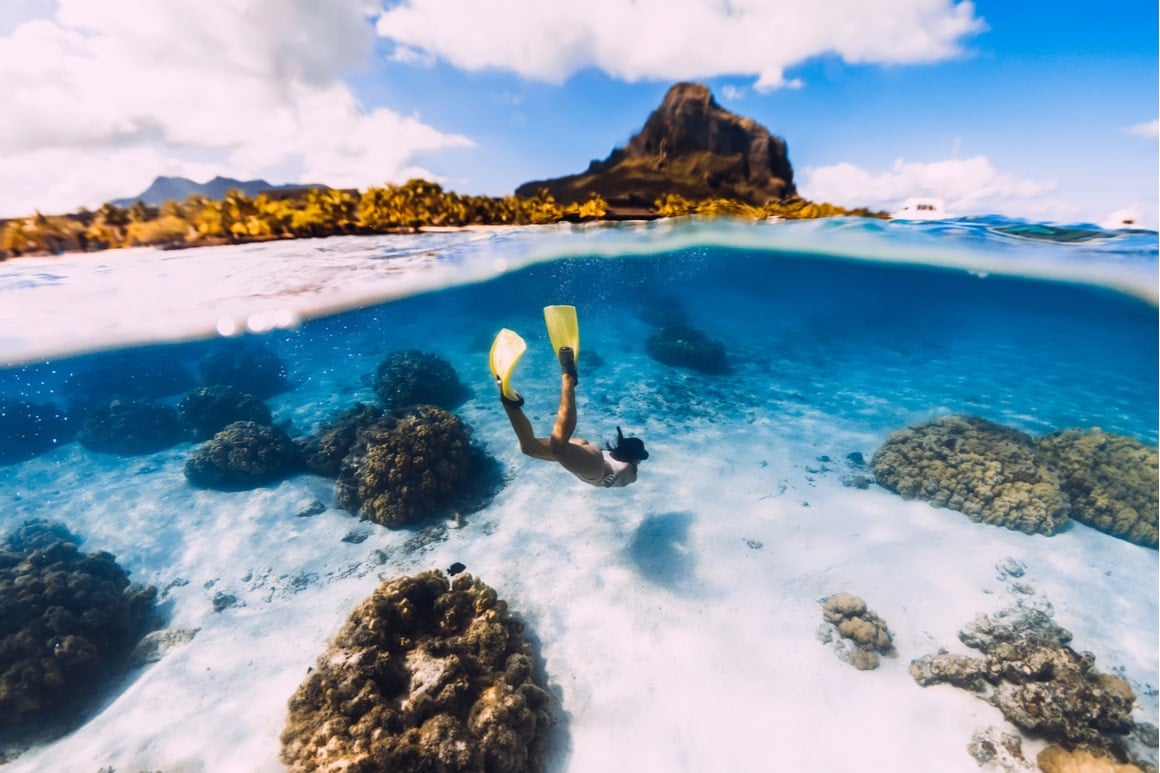
The Broke Backpacker is supported by you. Clicking through our links may earn us a small affiliate commission, and that's what allows us to keep producing free content 🙂 Learn more.
Why Learn to Freedive?
I grew up with a deep, undying respect for the power of the ocean.
Stories of king waves killing even the most experienced and legendary fishermen coloured my curiosity. I heard stories of surfers drowning in their sleep. Sometimes the abalone divers just wouldn’t come up for air again.
Did this stop me from surfing, snorkelling, swimming, diving, fishing? Hell no! I’ve been a beach baby through and through since my parents first chucked me in the shallows as a toddler.
But there was one ocean practice that I didn’t try growing up. It was talked about in hushed, reverent tones. It was for the most experienced of the ocean lovers: freediving.
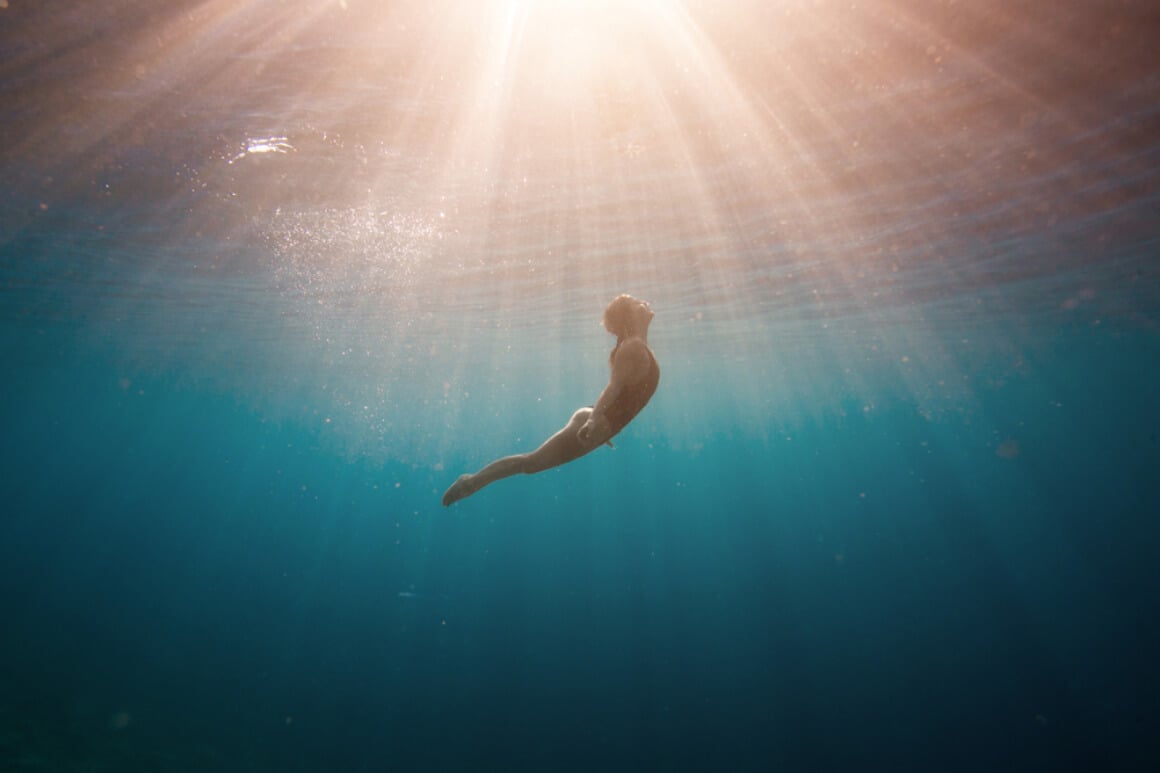
These days freediving is a growing and respected discipline that we ocean lovers will practise competitively or recreationally! I think we should all learn to freedive because it’s one of the most valuable skills you can have in your mental health toolbox – as well as being excellent for your health!
Learning to freedive can take you to some of the best destinations in the world, and help you improve your spearfishing or underwater photography skills. It’s also a welcome change from the noisy SCUBA set-up that the divers are used to. But more than anything, it reminds you of your ability to push your limits and achieve things you thought were legendary one-offs for far superior humans.
When I learnt how to freedive, I really got a hundred skills chucked in for the price of one. I learned how to spearfish better, I learned how to meditate and shut my brain down, and I learned about our fascinating physiology that does everything it can to keep us alive.

Unlock Our GREATEST Travel Secrets!
Sign up for our newsletter and get the best travel tips delivered right to your inbox.
The First Time I Learned to Freedive
The first captain I worked for while living the boat life taught me about freediving. I’d already been spearfishing with him on our days off, and I was comfortable with my limited, recreational ability to hold my breath for a minute – maybe two minutes on a good day.
To be honest, I’d been pretty resistant to him teaching me anything more about freediving. I was stubborn and he was cocky:
“I can hold my breath for two minutes, I know my limits!”
“You can do better than that. You just don’t want to listen to me.”
But then, one day, we had four guests on board who wanted to learn how to freedive. My captain was giving them pointers as he was a certified freediving instructor. Oh-so-casually, he mentioned that he’d been “teaching Indi to freedive”.
In front of our guests, he said, “Do you trust me?”
After briefly entertaining the thought of pushing him overboard for putting me on the spot like this, the stubborn mule in me took over. I’ll show him, I can only hold my breath for two minutes, I know my limits, he knows this, the wanker, etc.

And so we went through the basics of freediving 101: relaxation, breathing, meditation. Count the contractions in your diaphragm. Needing to breathe isn’t triggered by lack of oxygen, it’s triggered by a CO2 build up. You can push your limits. Let’s talk about the mammalian dive reflex.
All the while, I was laying still, eyes closed, with his hand over my nose. The usual state of calm I felt while swimming had consumed me. I did notice the contractions in the diaphragm.
At first, they weren’t painful. I did like hearing about the mammalian dive reflex – how interesting… Ooh, the urge to breathe is really kicking in. Nah, actually, it’s ok, I can keep going.
Eventually, I tapped out and looked around a bit embarrassed. The guests were about to go down, have their freediving lessons, and smash my measly little record. Man, I already told him my limit was less than two minutes – why’d he have to prove that to the guests?
“So, how do you think you did?”
“I dunno, a minute and a half maybe?”
“Three minutes fifty-seven seconds.”
Don’t you hate it when someone else is right? Learning to freedive is so much more than duck diving in the surf. It’s more than swimming with the fish. It’s a discipline that will push you beyond your limits – which is the whole point of The Broke Backpacker Manifesto.
What is Freediving?
At its most basic, freediving is simply holding your breath underwater, usually with the goal of retrieving something. It’s an ancient discipline that has sprung up in almost every coastal culture.
2000 years ago, the Ama in Japan used to freedive to collect pearls. In Malaysia, there are the famous Bajau people aka the sea nomads with the unique ability to hold their breath for minutes and minutes at a time.
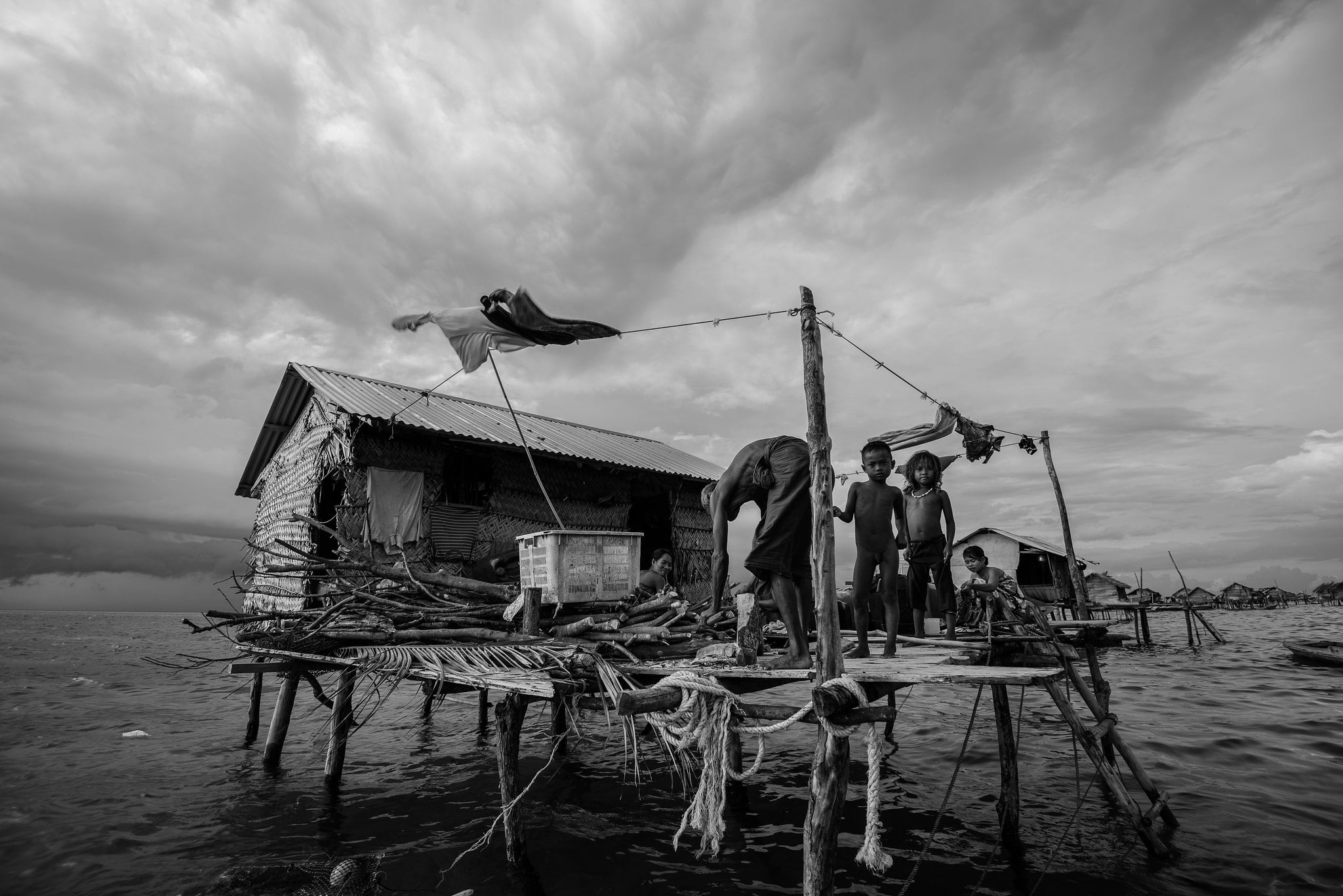
Image: Johnjodeery (Flickr)
In Ancient Greece, freedivers would descend to depths of 30 metres to harvest red coral. And over in Chile, the Chinchorian were likely avid freedivers. Across the world, across cultures, and across history, there have been freedivers.
Freediving is a unique mix of art and science that pushes the body and the mind to its limit. But let’s not overcomplicate it. Whether you want to spearfish, do underwater photography, or simply enjoy the sport, at its core learning to freedive is about controlling the urge to breathe.
Plus, if you’re visiting the Island of the Gods, then there are some amazing spearfishing opportunities in Bali.
Safety First!
Before I get into the basics of learning to free dive, we gotta talk about your safety. This isn’t to put you off or scare you! The rumours of freediving being an adrenaline junkie’s quick way to shallow water blackouts is enough fear-mongering.
Nah, this is just to get us all on the same safe page. When you’re out there freediving, keep these 3 tips in mind.
- Always dive with a buddy.
- Learn freediving from someone experienced.
- Stay humble.
Join our entrepreneurship retreat in Bali!
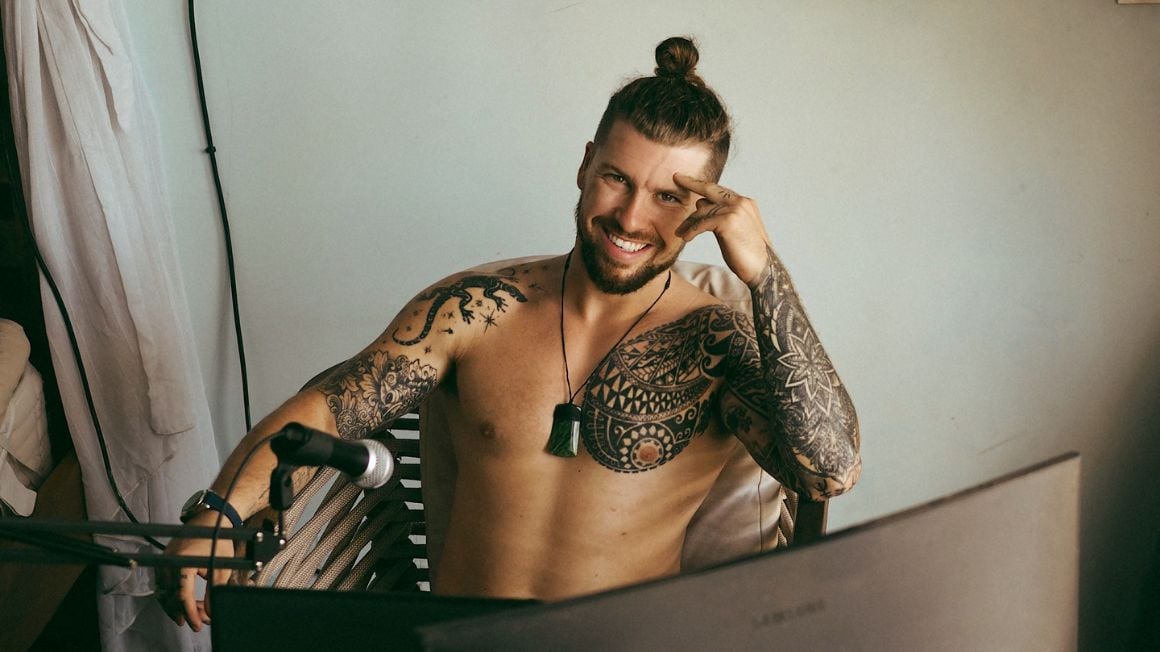
Ahoy friends, Will here! Introducing a very special project that involves YOU – An 8-day immersive experience in Bali, where I have been living for 7 years now.
If you’re passionate about freedom and designing your dream life, this is your chance to join like-minded folk on the same path and learn from my own wins, losses and lessons over my fifteen years of entrepreneurship, whilst soaking in the best of beautiful Bali.
Expect daily workshops, recharge practices, intention setting and fire ceremonies and perhaps a cheeky game of pool against myself, the one and only undefeated pool legend. All while experiencing the island’s best-kept secrets.
Freediving 101 – How Do I Do This Thing?
There are four main types of freediving: free immersion, constant weight, variable weight, and no limit freediving. As a beginner, you will start off with free immersion.
Remember, dive with a buddy and take advice from experts! While I’m certainly no pro, I do know the basics of getting started at freediving.
But before you can even begin to pull yourself down a rope into the deep blue, you have to learn about your body and your breath.
At any given moment, your body is saturated between 96% and 99% oxygen. You have more than enough oxygen to sustain your cellular functions and continue living. It is actually the build-up of CO2 in your system that triggers you to breathe.
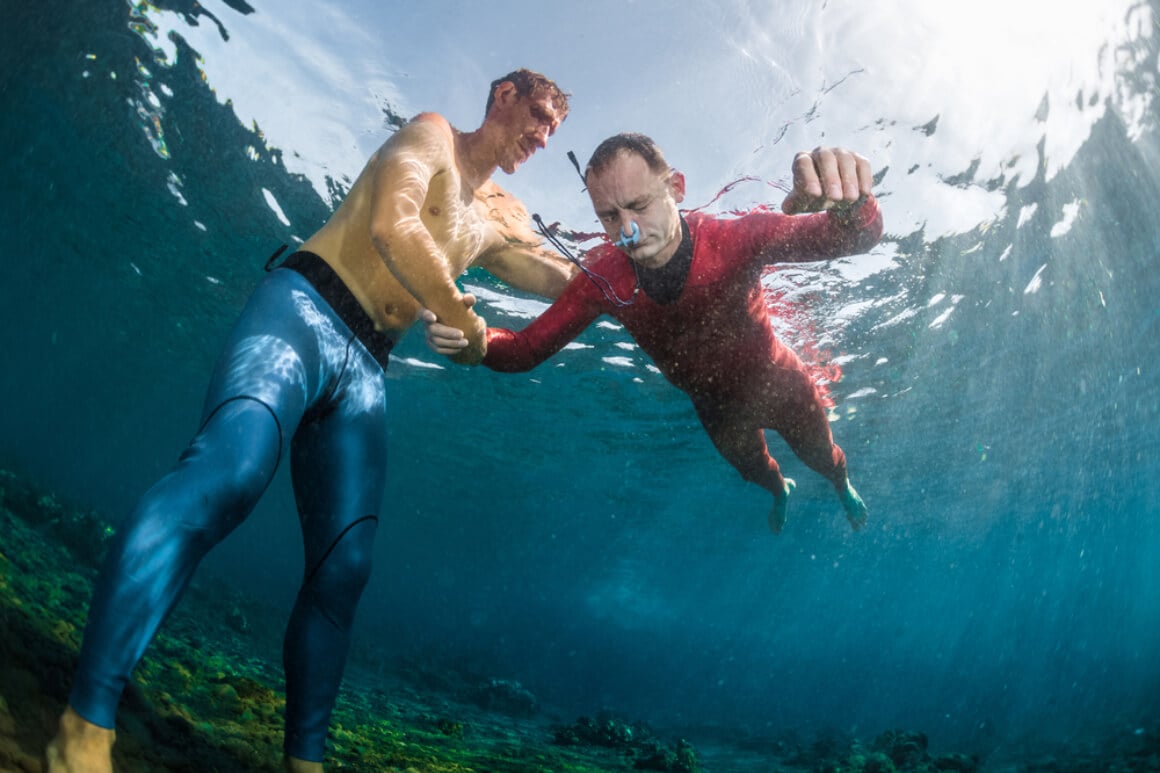
Most of us begin with a low tolerance to CO2 – and rightly so! We need this trigger to remind us to breathe. But one of the fascinating things about our body is that we can train and push our CO2 limit. This means that you will not feel the trigger to breathe and can therefore hold your breath for a longer time.
The way you can train for a higher CO2 tolerance is by practising breath-holding – and specifically, ensuring you are relaxed and taking one full breath before you hold.
One Full Breath
This is a concept where you empty your lungs to their residual level by completely exhaling. You then inhale into your diaphragm first, then into your chest, and finally into your oesophagus.
You should resist the urge to hyperventilate as this can soak your system with CO2 and make a shallow water blackout more likely.
If you have ever practised yogic breathing or diaphragmatic breathing, this will feel familiar. Essentially, you are slowing down your breathing rate, calming your mind, and ensuring your body has the greatest saturation of oxygen possible for the upcoming dive.
It’s recommended that you practise this daily if you want to see the best results in your freediving. Personally, I find this a particularly enjoyable form of mediation. I’ve never been very good at ‘thinking about nothing’ or meditating in the traditional sense. I’ve always felt the need to do something.
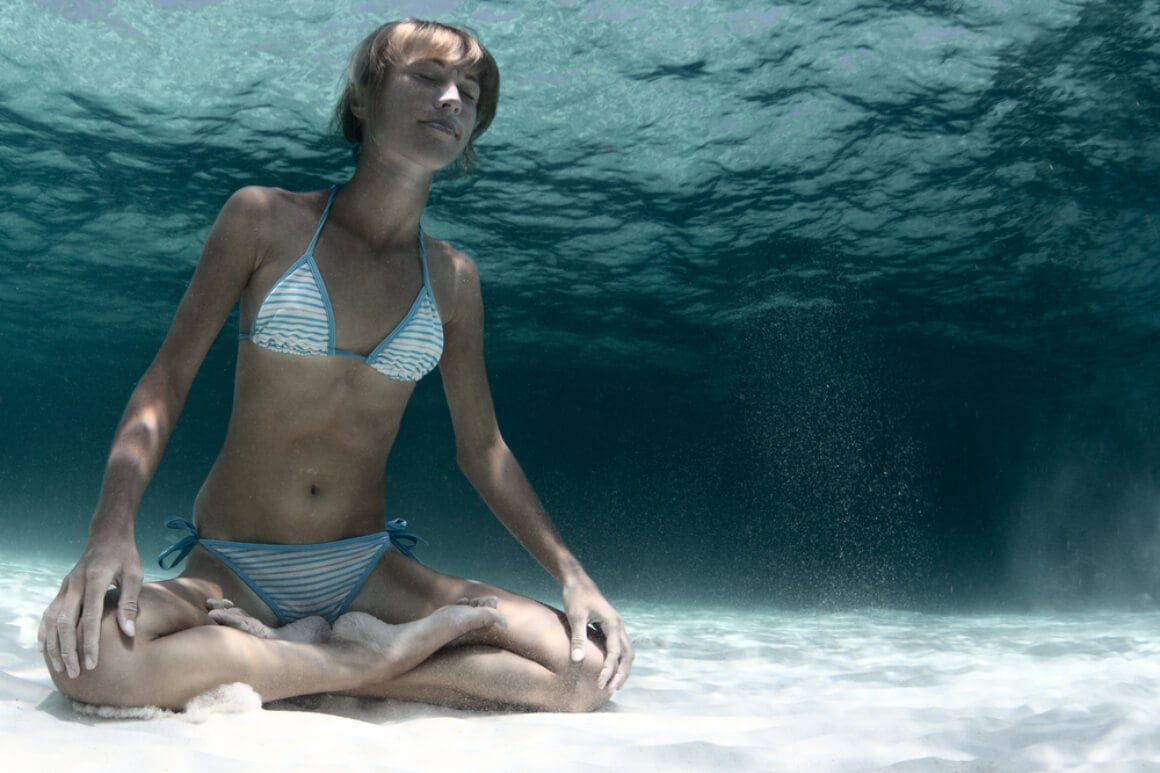
Learning to breath-hold – a core concept of freediving – has thus become my daily mediation. So even though I don’t go diving every day, I still enjoy the benefits of learning to freedive.
Once you have breathed into your diaphragm and let your chest expand, you simply hold your breath for as long as you can. It becomes a tug of war between you and your body.
Except, it’s not war. You’re on the same team.
It’s kind of distracting your mind; by counting the contractions in your diaphragm; remembering the lyrics to your favourite song. You can stay relaxed. Anyone can increase their CO2 tolerance.
But ultimately, it’s a little game you and your body play. The better you get at holding your breath, the better you’ll be able to freedive.
Mammalian Dive Reflex
This is what sold me on properly learning to freedive. This fascinating reflex that all of us have is, for me, at the heart of freediving as a practice. When my captain first taught me the core concepts of freediving in front of our charter boat guests, he began by splashing my face with cold water.
I thought he was being dramatic for the sake of the guests, but he was really triggering my mammalian dive reflex. Yep, even splashing your face with cold water is enough to trigger this reflex (although submerging your face works best).
So what is the mammalian dive reflex?
This is a reflex found in all air-breathing vertebrates that humans have ever studied. Essentially, it’s a set of processes that override what’s known as the homeostatic reflexes. It enables us to withstand longer periods of submersion in water. To me, it signals the intrinsic link between life and water.
Wait, what? Slow down, that sounds convoluted! Or worse, hippy-dippy!
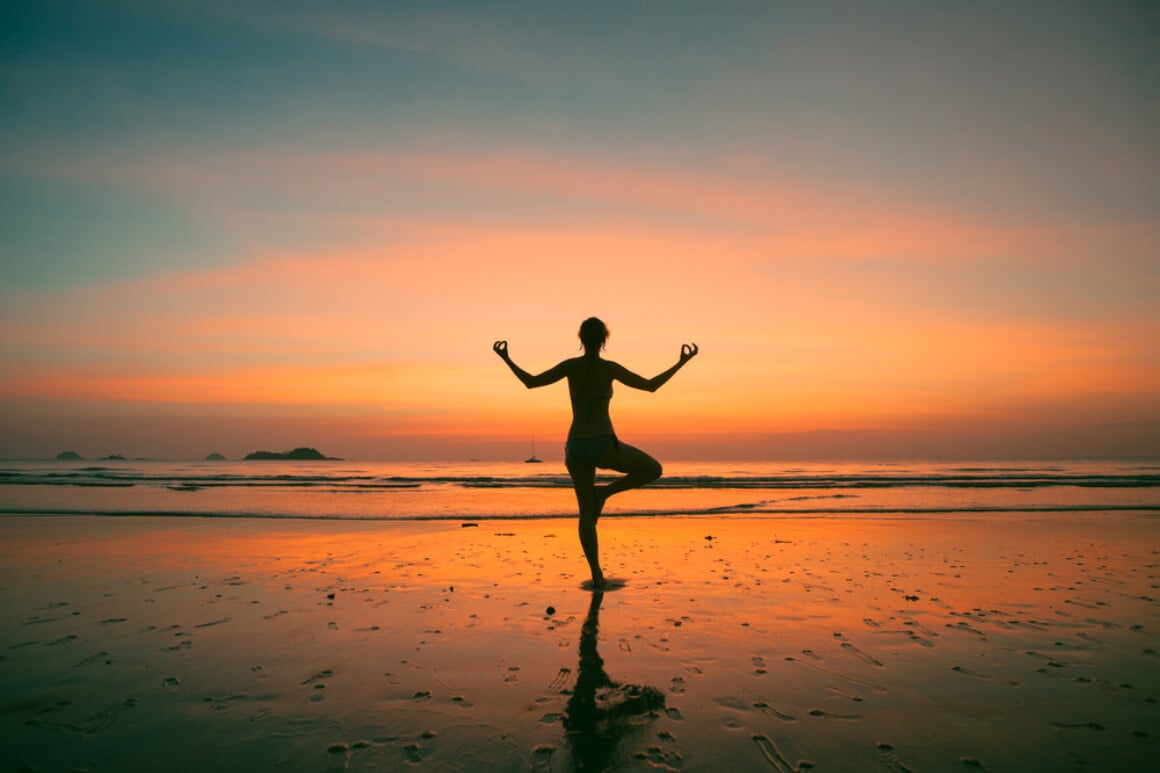
Basically, when you are submerged in water, you lose your ability to gain oxygen from the air by breathing. The body then has to utilise the oxygen that is saturated within its system to survive.
Therefore the less oxygen you use, the longer you can stay underwater. So, the mammalian dive reflex then comes to refer to a bunch of processes that allow us to do exactly that.
Your heart rate slows down – by up to 25% – and blood flow is directed to the heart and brain. This acts to conserve oxygen and allow you to stay alive underwater without breathing for longer. The thing is, you don’t have to learn how to slow your heart rate or redirect your blood flow. Your body instinctively does this when the body comes into contact with water, e.g. when my face was splashed with cold water.
Side Effects of the Mammalian Dive Reflex
One of the side effects of the mammalian dive reflex is that the body relies on anaerobic (that is, without oxygen) respiration as opposed to aerobic respiration. Anaerobic respiration leads to lactic acid build-up which causes us to feel “sore” muscles. If you have ever weight lifted, engaged in HIIT, yoga, or pilates, you have engaged in anaerobic exercise and you’ll know the burning feeling of exhausted muscles.
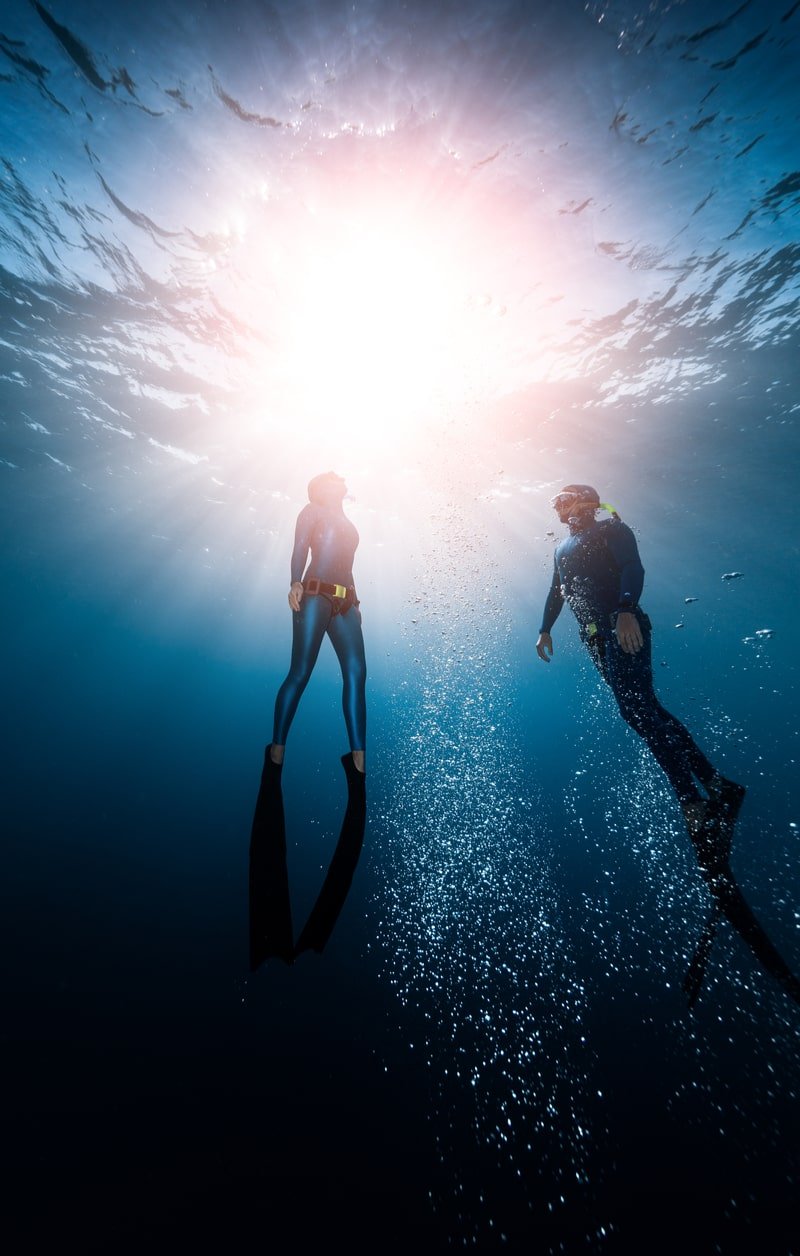
Now, this is quite a basic explanation – which is why I say that you’ve got to learn from the pros when you start to learn to freedive! But essentially, you want to engage your mammalian reflex to use as little oxygen as possible so that you can stay underwater for longer on a single breath. You also want your body to have a higher CO2 tolerance, and to be in “good shape” so that you are most efficient at retrieving stored oxygen from within your system.
If you can imagine being splashed in the face, and then having this explanation softly spoken to you while you hold your breath, then you can imagine my first foray into properly preparing to freedive. The biggest feeling I was aware of was one of absolute calm.
Our bodies were made to do this.
Relaxing AKA Just Chill Out!
The more relaxed you are, the less oxygen you use. The more efficient your oxygen use, the longer you can hold your breath.
This sounds like, uh no doy! But it’s wild how the implications of stress can impact your freediving. For example, if I’m just breath-hold training in my bed you’d think I’d be at my most relaxed and therefore get a good breath-hold time.
But my senses are heightened and I can hear the neighbours arguing, the traffic on the street below, and my roommates cooking in the kitchen.
Even with these very minimal distractions, I am not able to hold my breath for a very long time. The diaphragm contractions are too much and I simply cannot resist the urge to breathe. I am simply not relaxed enough.
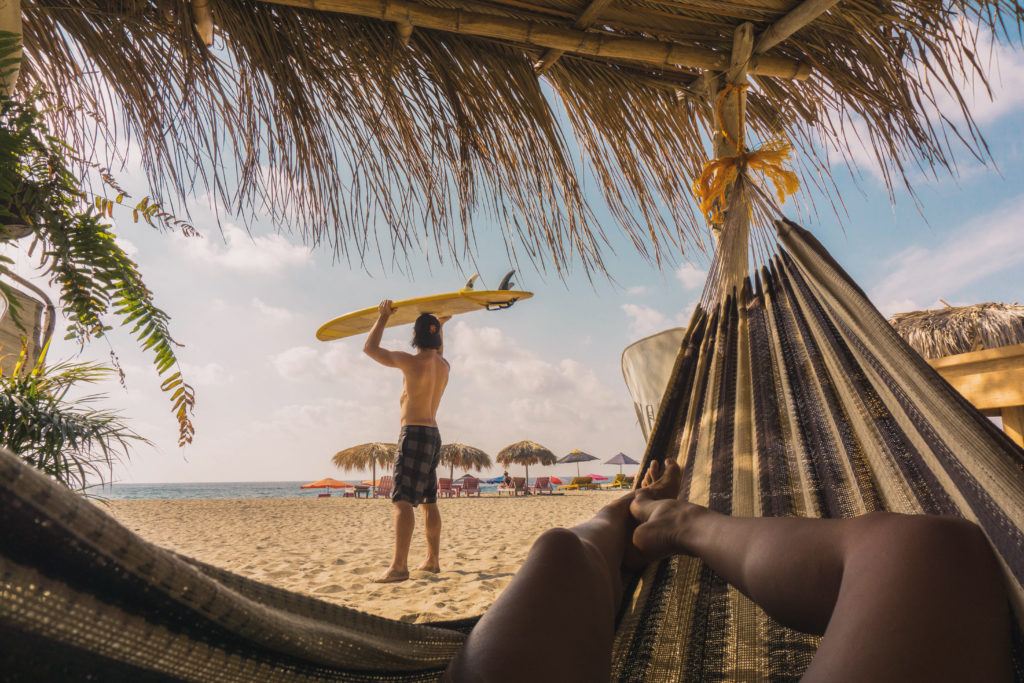
Photo: Ana Pereira
However, if I trigger that mammalian reflex by splashing my face with cold water, or training with a buddy by submerging my face in cold water and then holding my breath, my breath-hold time improves.
If I then try to hold my breath lying in my bed, my body is in a state of relaxation and I can once again achieve a good breath-hold time. The other way I can improve my breath-hold time is by meditating beforehand.
Whatever technique you use to relax, that’s the one you go with. There is no prescription for how to be chill! 😉
Once you are relaxed, a wonderful self-perpetuating cycle of more relaxation begins. Relaxation breeds relaxation breeds longer breath-hold times breeds awesome freediving!
Equalising and Depth Magic
One of the drawcards to freediving is being able to dive deep. Now, when you dive deep, you subject yourself to the pressure of the water around you.
If you have been SCUBA diving, then you’ll be familiar with this concept. I will elaborate, however, because it is fascinating! (Can you tell that I’m a massive fucking nerd who moonlights as a commercial diver yet?)
When you stand at the water’s edge in your cute-ass bikini and flippers, you are subjected to 1 atmosphere of pressure. That is, the atmosphere of the Earth pushes roughly 14.6 pounds of force on you. This is the atmosphere that you have become evolutionarily primed to thrive in.
In 10 metres of water, you are also subjected to the equivalent of 1 atmosphere of pressure. But in 20 metres of water, you are subject to 2 atmospheres, or twice the pressure.
So you and your cute-ass bikini and flippers experience some pretty intense changes…
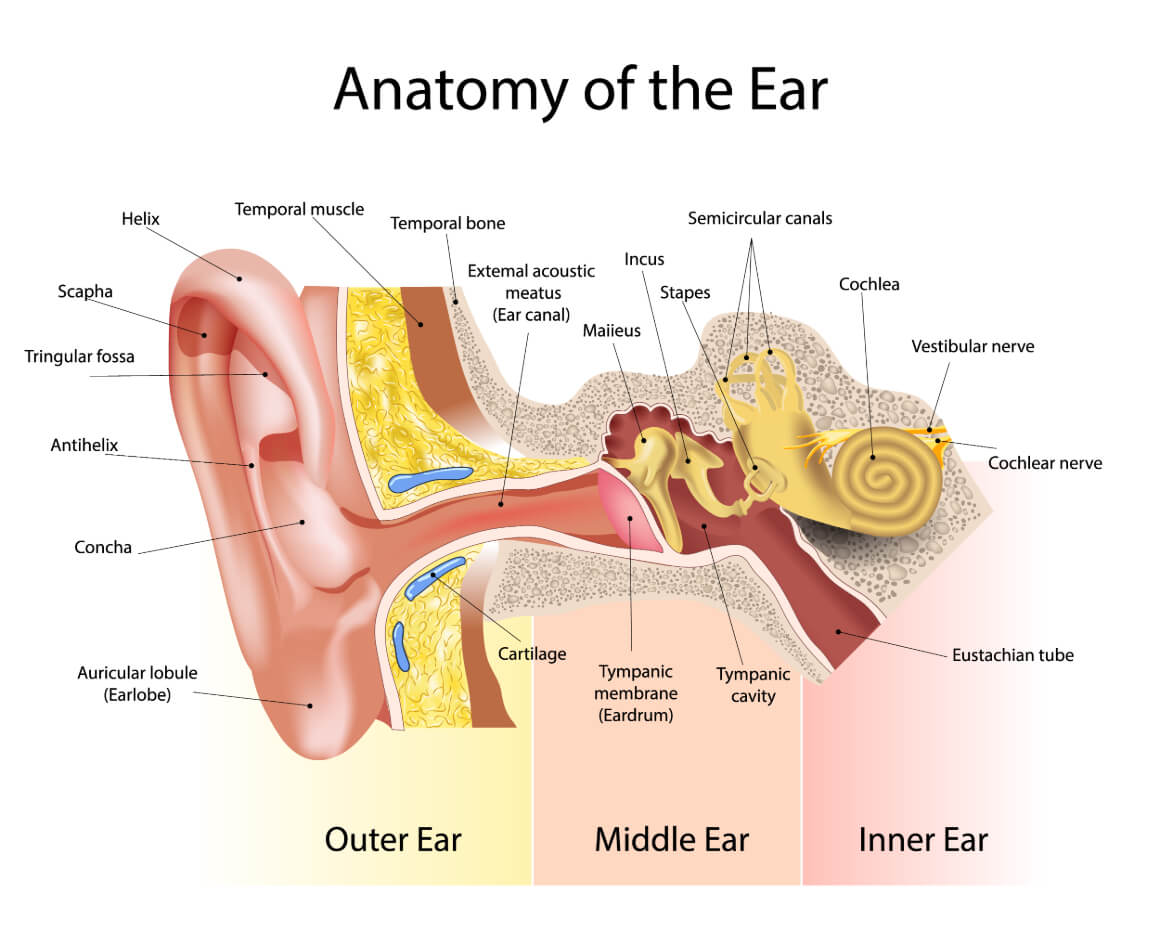
When you descend underwater, your body is compressed by the increased pressure. Most of your body can tolerate this pressure. In fact, trials have been done where humans were subjected to over 64 atmospheres of pressure!
The liquids and solids in your body essentially act as incompressible; though some really interesting stuff happens to the gases and the air space.
The novice freediver is primarily concerned with the middle ear air space. The other stuff, while deeply interesting to a commercial diver, doesn’t need to be droned on about here. But when you dive, this middle ear air space needs to be equalised.
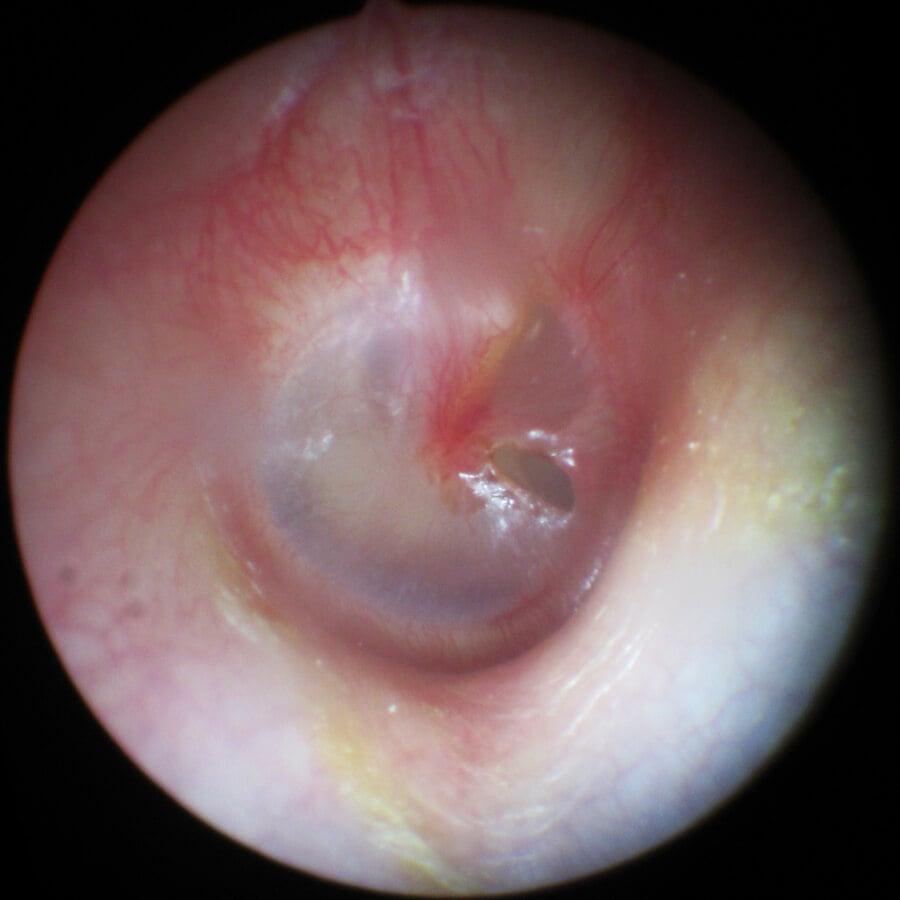
You may have felt the need to equalise your ears before – such as on a plane ride. All you have to do is push air through your Eustachian tubes by doing something like the Val Salva manoeuvre.
If you don’t equalise your middle ear’s air space you can risk rupturing it – which let me tell you, is NOT a good time! You should never dive deeper or faster than you can equalise your ears.
Always equalise!
Freediving AKA the Ultimate Travel Tool
When you’re vagabonding the world as a broke backpacker, there are many wonderful and distracting pursuits you can fall into. I mean, who can say no to a little dabbling with drugs while travelling?
The backpacker traps come for us all and suddenly you’re in your fourth country in as many months feeling burned out and a little untethered. Who said travelling was always easy?
It is incredibly important to keep an eye on your mental health while travelling. Actually, it’s important all of the time. But often when you travel, you are going through a transformational phase in your life. Things can get big, exciting, and also overwhelming.
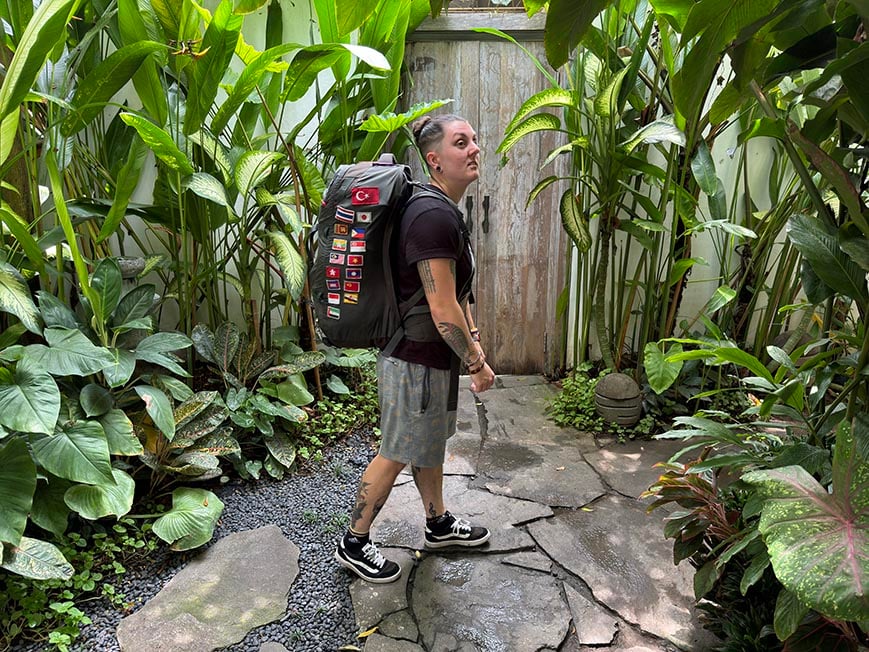
Image: Nic Hilditch-Short
Having a practice – like freediving – that involves focusing on your breath and keeping fit on the road is very powerful. It can keep you grounded while you go on gallivanting through foreign lands and generally living your best life!
My own experience with freediving has proven to me time and again that it works as the ultimate travel tool. It allows me to avoid travel burnout. When the road gets a bit much, I simply find a body of water and take a swim. I take a deep breath and see how long I can play the game.
Of course, some bodies of water are a little nicer than others! This leads me to tell you about my top 3 freediving destinations in the world!
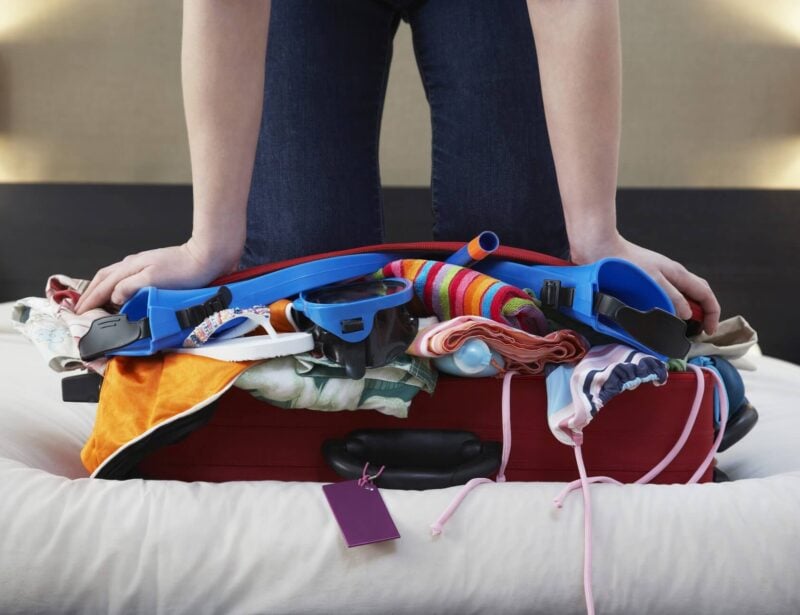
Wanna know how to pack like a pro? Well for a start you need the right gear….
These are packing cubes for the globetrotters and compression sacks for the real adventurers – these babies are a traveller’s best kept secret. They organise yo’ packing and minimise volume too so you can pack MORE.
Or, y’know… you can stick to just chucking it all in your backpack…
Get Yours Here Read Our ReviewTop 3 Freediving Destinations
The world is full of some freaking amazing destinations! There is really no shortage of epic places to splash some water on your face and trigger that mammalian reflex.
#1 The Best Place in the World to Go Freediving – Dean’s Blue Hole (The Bahamas)
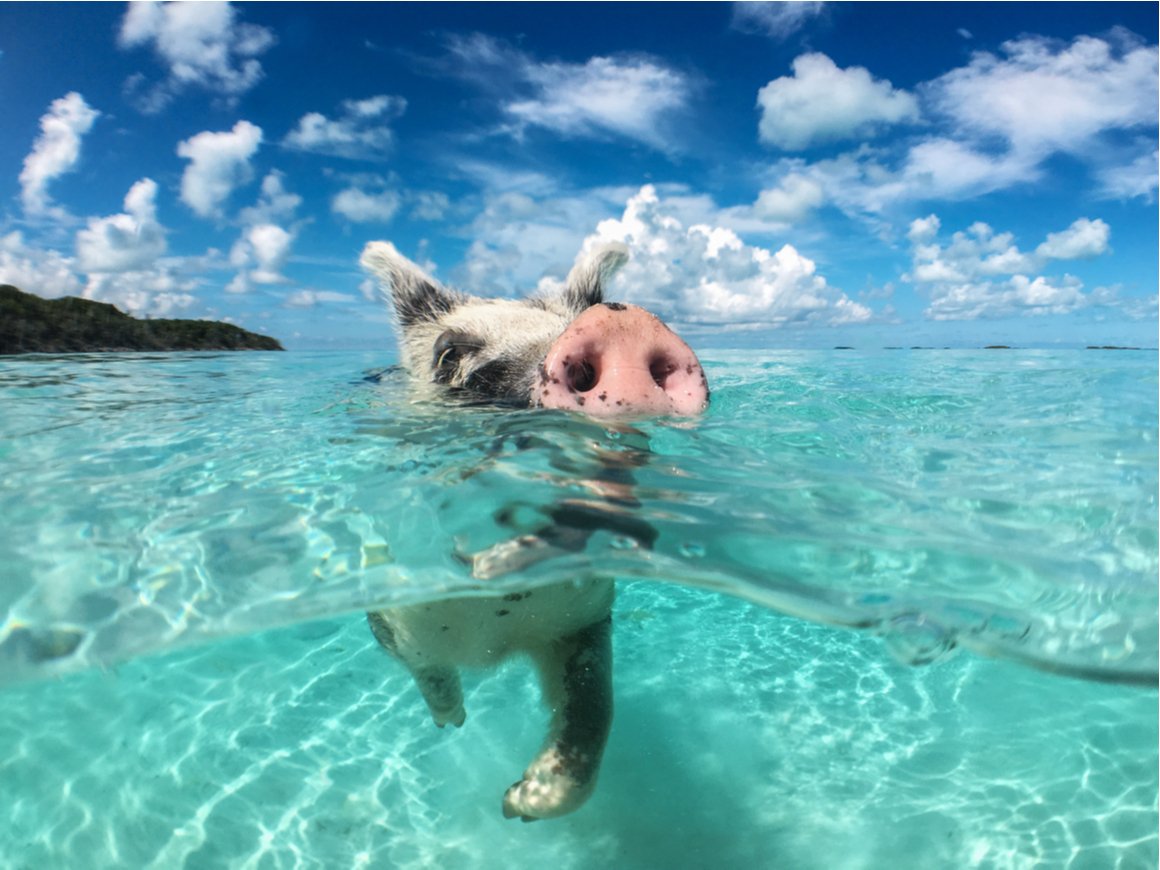
This is the most famous blue hole in the freediving world as it’s where the annual Vertical Blue competition is held. Many incredible records have been set here as divers push themselves to get just a little closer to the 203 metres deep bottom of the blue hole.
It’s also a freaking spectacular place to visit. Blue holes are sinkholes that form these mesmerising deeper blue patches of water. In the Bahamas, this contrasts with baby blue shallows all around.
The Bahamas always feels a little wild and surreal to me. They are out of this world beautiful, sure, but they’re also wild. They are full of island culture and slow living and you know you can find a beach bar to get a little silly drinking rum in. But because they have such a low population density, you always seem to run into experts in their field.
One day, you’ll be chatting with a pro freediver in the bar and the next day you get a spearfishing lesson from their friend’s friend who holds a spearfishing record. We’re all attracted to the boundless opportunities this pristine slice of the ocean offers us!
#2 The Best Budget Destination to Go Freediving – Belize
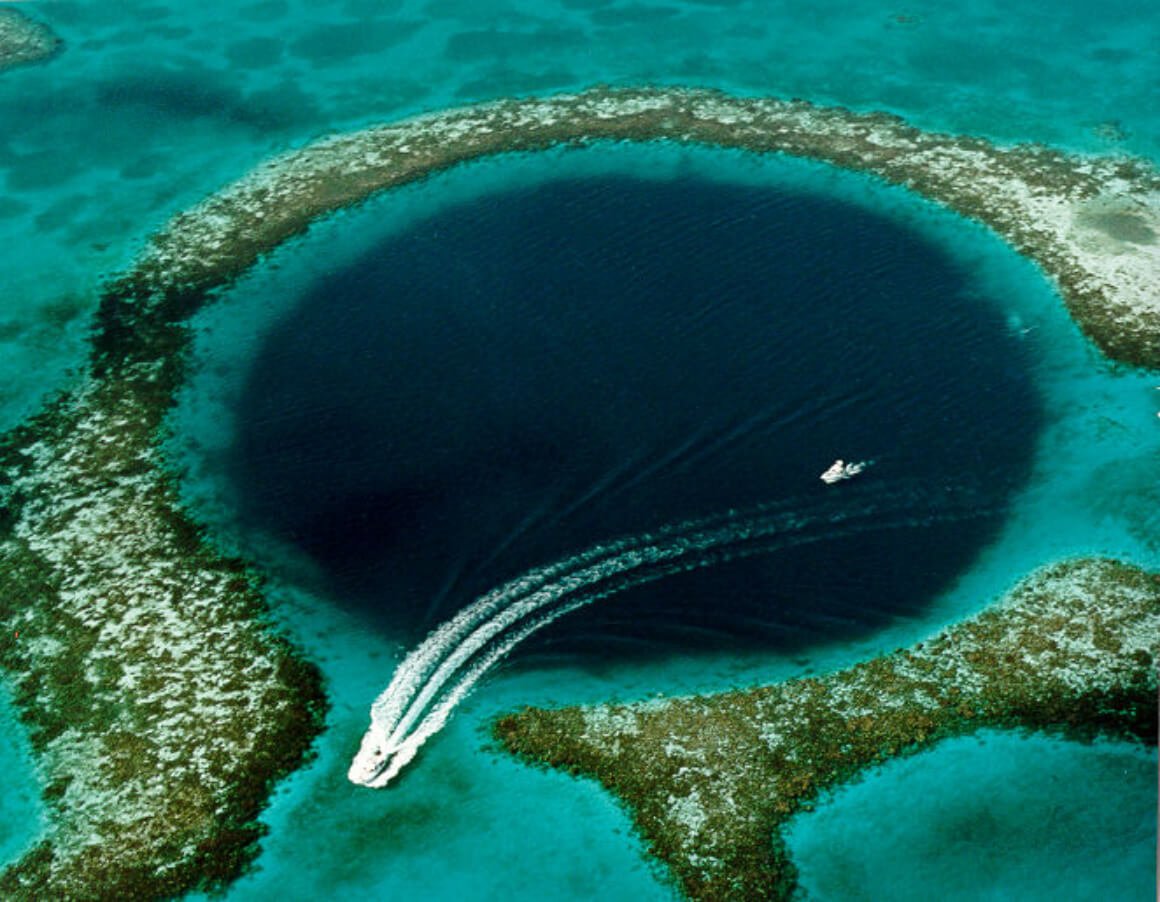
Image: U.S. Geological Survey (USGS) (Wikicommons)
Belize is home to another famous blue hole, known as the Great Blue Hole. In my opinion, it’s visually far more stunning than the one in The Bahamas. When you navigate your way there by boat, it’s also a little sketchier – which makes the reward of arrival that much sweeter.
Belize has many incredible reefs to practise your diving on as well. And I’ve caught some delicious lobster over there! Belize has a lot of the natural beauty and Caribbean culture in common with The Bahamas – without the price tag!
Like most of the best Caribbean islands, there is that absurd element to travelling here. It looks like our definition of paradise, but under the surface are so many scandals and intrigue. I just always felt I was on the run – and maybe I was in some philosophical sense. 😉 But, it certainly didn’t help that the bars were full of somewhat legitimate pirates cutting botflies out of horrified tourists and the beaches were full of “reformed” cocaine addicts.
Anyway, digression aside, Belize is a freakin DOPE place to go diving and it doesn’t break the bank.
#3 The Best Place to Learn to Freedive – Gili Islands, Indonesia
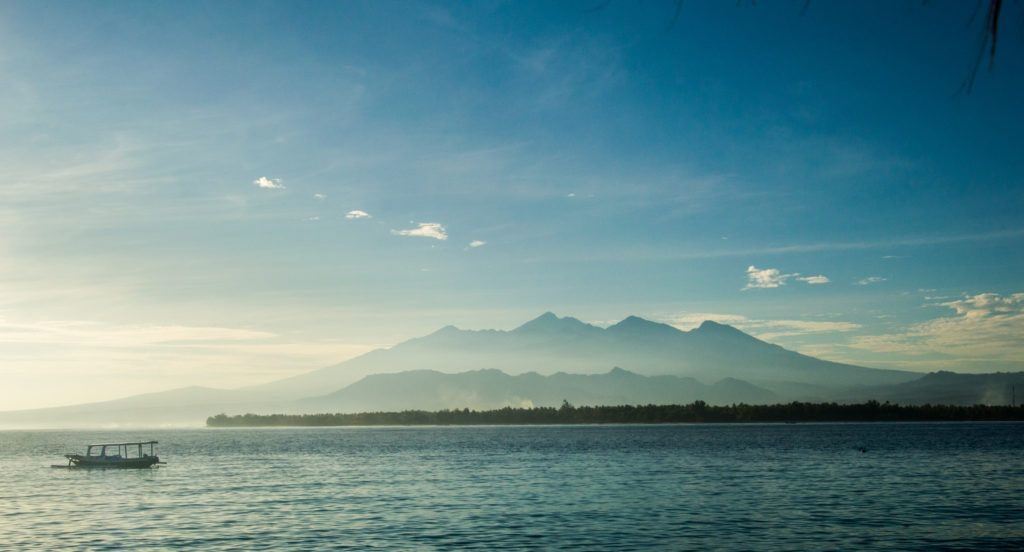
The Gili Islands of Indonesia are a special kind of paradise. They say there’s no such thing as a bad sunset on these islands – and they’d be right! With incredible reefs and balmy water conditions, people have been flocking here to learn how to dive for years. The Gili Islands rank as my favourite part of backpacking Indonesia.
A freediving course here is not expensive, and the holiday that goes along with it is pretty sweet too! Indonesia is one of my favourite countries in the world because you can get a big, cheap plate of nasi goreng for lunch, freedive all afternoon, and then make sandcastles under the moonlight.
Basically, you get to slow down and not do much at all. And when you’re truly relaxed and unbothered by money, time, or itineraries you’ll get a better freediving time. 😉
Plus, there are heaps of opportunities for freediving in Bali too, which is nearby.
#4 Shh, Indi’s Super Special Shoutout – Mexico and the Cenotes
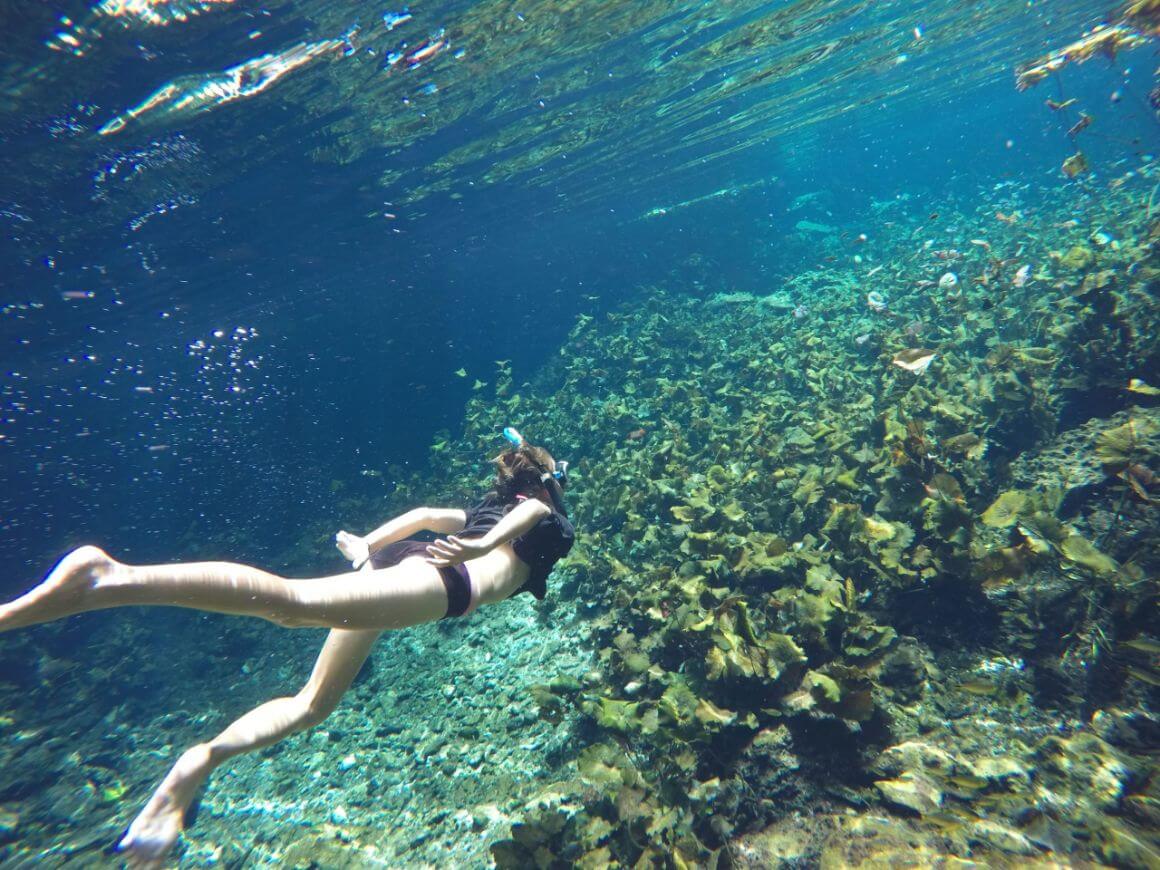
Photo: @indigogoinggone
Ok, turns out I couldn’t just stick to the three best places! I had to mention the cenotes that I found while travelling the Yucatan in Mexico.
The incredible blend of salt and fresh water is so clear, that I actually fell into one assuming it was frozen over! Look, I don’t consider myself particularly intelligent but surely I would’ve realised we’re in Mexico where the water doesn’t freeze!
The Maya use to use the cenotes as sources of water and sometimes ritual sacrifice. Mexican archeologists have recently discovered an almost intact canoe at the bottom of a cenote that dates back to Mayan times. There’s this freaky feeling when you swim through clear-ass waters that you know hold sacrificial secrets…
SCUBA divers and cave divers will probably know of the famous diving networks surrounding the cenotes. You can go into some truly unexplored territory here. I think the cenotes are less popular as purely freediving destinations. But for me, I’ve had some of my best experiences on one breath here.
Plus, you get to backpack Mexico while you’re here! And Mexico ranks as one the best places to travel alone. It’s cheap, the food is delicious, the culture is wild and fun and super varied – plus the countryside is so freaking stunning!
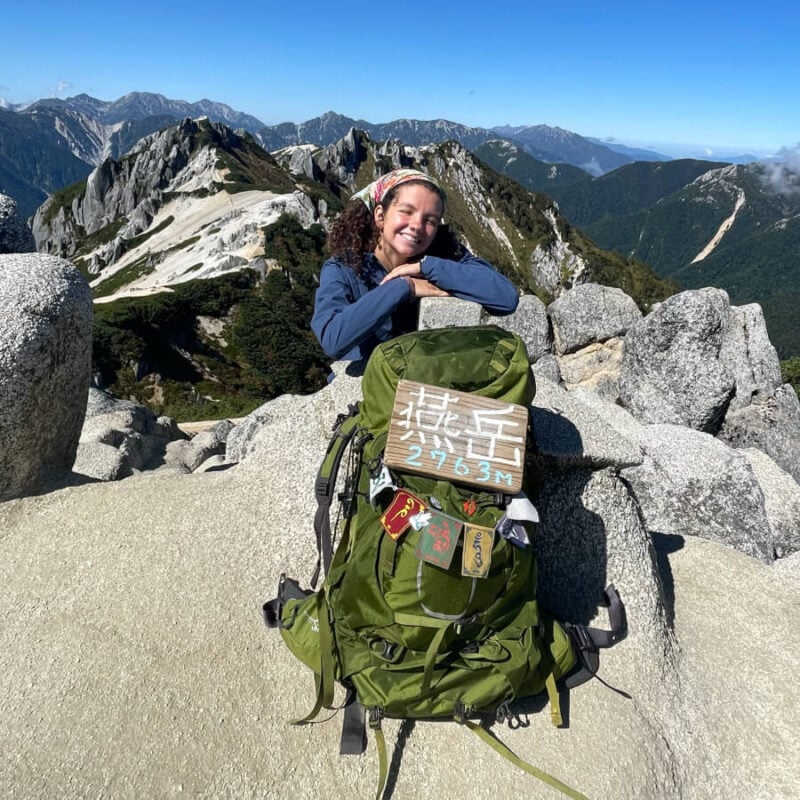
We’ve tested countless backpacks over the years, but there’s one that has always been the best and remains the best buy for adventurers: the broke backpacker-approved Osprey Aether and Ariel series.
Want more deetz on why these packs are so damn perfect? Then read our comprehensive review for the inside scoop!
View on OspreySafety First, Safety Last
The biggest risk to freediving is a shallow water blackout. It’s not a super common occurrence and is quite preventable.
A shallow water blackout occurs when a diver runs out of oxygen and passes out underwater.
And what causes drowning is not necessarily the lack of oxygen but the inhalation of water that occurs as a result. Despite its name, shallow water blackouts can occur at any depth. They aren’t necessarily fatal and don’t have to lead to drowning. So what can you do to prevent them?
- Dive with a buddy.
- Breathe when you surface.
- Be correctly weighted.
Now, we don’t like to think of the worst of times when things are going well and we’re freediving to our heart’s content! But sometimes when we travel, shit happens.
Rather than leave medical bills up to chance, it’s nice to know that you’ll be covered if something does go wrong! One way you can do this is by getting insured through a top travel insurance company like World Nomads.
World Nomads are a flexible and affordable travel insurance option that keeps you covered in ALL kinds of situations.
ALWAYS sort out your backpacker insurance before your trip. There’s plenty to choose from in that department, but a good place to start is Safety Wing.
They offer month-to-month payments, no lock-in contracts, and require absolutely no itineraries: that’s the exact kind of insurance long-term travellers and digital nomads need.
SafetyWing is cheap, easy, and admin-free: just sign up lickety-split so you can get back to it!
Click the button below to learn more about SafetyWing’s setup or read our insider review for the full tasty scoop.
Bonus Freediving Tips
And here are some bonus tips for ya cause ya just too damn cute! 😀
- Have a correct fitting mask! This is not only for comfort levels, but it reduces ‘mask squeeze’.
- Good diet. Eating well will make equalising easier, and diving in general more comfortable.
- Stay calm. The calmer you are, the less oxygen you use and the longer you can stay underwater!
Final Thoughts on Learning to Freedive
Ultimately, freediving is a skill that has rippling benefits throughout your travels. It can take you to glorious, sun-kissed islands and to the cold, clear cenote depths. It teaches you to slow down and appreciate simplicity.
Freediving isn’t a dangerous pursuit, so long as you always dive with a buddy and learn from someone more experienced than yourself. It’s a sport that teaches you to both stay humble and push yourself to do things you thought were impossible.
I think there’s an intoxicating mix of art and science behind the practice too! On the one hand, you need to know all about the mammalian dive reflex, and on the other, you simply need to let go and relax.
Water is essential to life. And yet, we must learn how to move through it. Freediving’s greatest gift is in its name: freedom.
Learning to enjoy the underwater world in one breath is a gift that you will carry with you forever. It’s the underwater equivalent of yoga.
Dammit, the ocean will always turn me into a wannabe poet! Nevertheless, as you continue to vagabond the world, I think learning to freedive will serve you well.
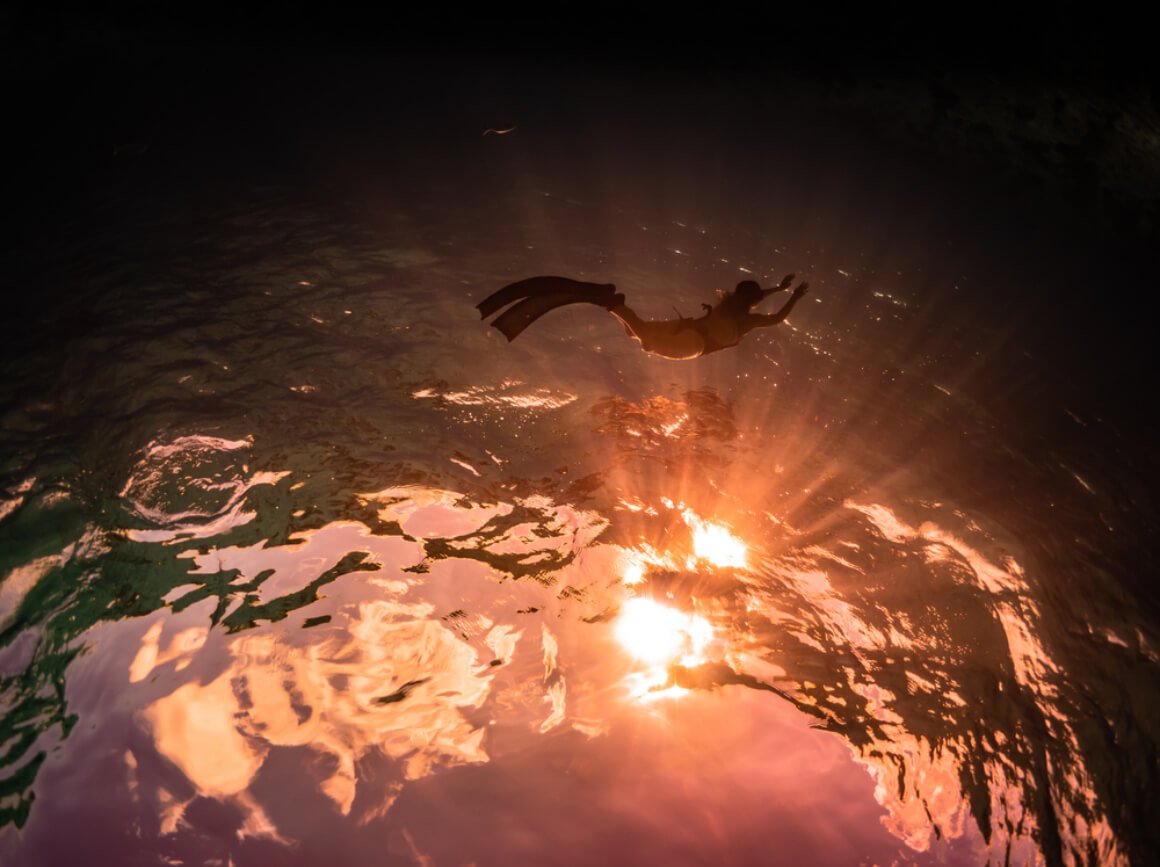
Buy Us a Coffee!
A couple of you lovely readers suggested we set up a tip jar for direct support as an alternative to booking through our links, since we’ve decided to keep the site ad-free. So here it is!
You can now buy The Broke Backpacker a coffee. If you like and use our content to plan your trips, it’s a much appreciated way to show appreciation 🙂









